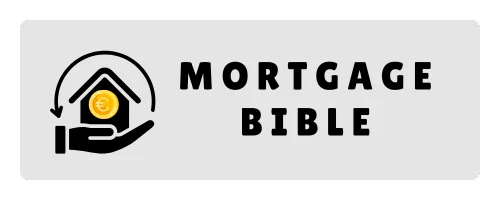Understanding ICS Mortgages and Their Growing Popularity in 2025
As the property market evolves, ICS mortgages have emerged as a notable option for homebuyers and investors alike. Whether you’re a first-time buyer or refinancing your existing loan, understanding what ICS mortgages offer could significantly impact your financial decisions. These specialized mortgage products often combine flexibility, competitive rates, and tailored repayment plans, making them increasingly attractive in 2025’s lending landscape. But are ICS mortgages right for you? This guide dives deep into the essentials, benefits, potential drawbacks, and key questions to consider before committing.
What Are ICS Mortgages?
Defining ICS Mortgages
ICS stands for Interest-Only and Capital and Interest combined mortgage options. These mortgage types give borrowers the choice between paying only the interest on their loan for a specified time or making repayments covering both the loan principal and interest from the outset.
Interest-only periods can be beneficial for those seeking lower initial monthly payments, while capital and interest repayments contribute to gradually clearing the loan balance.
How ICS Mortgages Work
– The interest-only component requires payments covering just the interest accrued, keeping monthly expenses relatively low.
– Capital and interest payments include a portion that reduces your principal loan amount alongside the interest.
– Many ICS mortgages allow borrowers to switch between these payment structures within the loan term, offering flexibility to adapt as income or financial goals change.
This adaptability appeals to borrowers anticipating fluctuating cash flow, such as renters aiming to invest in property or those expecting future income increases.
Advantages of Choosing ICS Mortgages in 2025
Flexible Repayment Options
One of the biggest draws of ICS mortgages is flexibility. Borrowers can:
– Opt for interest-only payments during financially demanding periods.
– Switch to capital and interest repayments when financially comfortable.
– Tailor their repayment strategy to match evolving life circumstances, such as career changes or property investment plans.
Lower Initial Monthly Payments
Choosing the interest-only option initially can reduce monthly outgoings substantially. For instance, if you have variable income or anticipate future pay rises, this approach eases financial pressure today while preparing for higher repayments later.
Potential for Greater Investment Opportunities
ICS mortgages are popular among property investors who aim to maximize cash flow. By minimizing monthly repayments early on, investors can allocate more funds toward purchasing additional properties or renovating existing ones.
Competitive Interest Rates
Many lenders offer attractive rates for ICS mortgages, sometimes more favorable than traditional repayment mortgages. This can lead to overall savings and increased affordability over the loan term.
Considerations and Risks When Opting for ICS Mortgages
Balancing Interest-Only Periods With Long-Term Debt
Though the initial repayments may be affordable, the loan principal remains untouched during interest-only periods. Borrowers must ensure they have a viable plan to repay the full amount before the interest-only arrangement ends.
End-of-Term Repayment Pressure
Transitioning to capital and interest repayments or arranging a lump sum payment at the end of the term can lead to significant financial strain if not managed properly.
Impact on Equity Growth
Since capital is not repaid during interest-only phases, home equity does not increase as quickly compared to standard repayment mortgages. This might affect borrowing capacity for future loans.
Potential for Higher Overall Interest Costs
Lengthier interest-only periods can result in more total interest paid over the mortgage duration. It’s essential to calculate the long-term financial impact carefully.
Who Should Consider ICS Mortgages?
Ideal Candidates for ICS Mortgages
– Property investors seeking to optimize cash flow.
– Buyers with irregular or seasonal income looking for initial payment flexibility.
– Individuals expecting significant future income growth or lump sum repayments.
– Those comfortable managing long-term repayment strategies and aware of the risks involved.
When ICS Mortgages Might Not Be Suitable
– Borrowers prioritizing steady, consistent reduction of debt from the start.
– Individuals lacking a clear repayment strategy or financial discipline.
– Homeowners focused on rapid equity building and long-term cost minimization.
How to Evaluate If ICS Mortgages Fit Your Financial Goals
Assessing Your Cash Flow and Future Income
Calculate your current and projected income to determine if you can handle switching from interest-only to capital and interest repayments later. Financial forecasting is key to avoiding surprises.
Understanding Mortgage Terms and Conditions
Review contract details for:
– Interest-only period duration
– Penalties or fees for repayment changes
– Interest rate adjustments
– End-of-term repayment options
Confirm these points with your lender or mortgage advisor to ensure no hidden pitfalls.
Consulting Mortgage Experts for Personalized Advice
Working with a qualified mortgage broker can greatly increase your chance of choosing an ICS mortgage that aligns with your circumstances. Experts help you navigate options, request competitive quotes, and clarify jargon.
Comparing ICS Mortgages to Other Mortgage Products
ICS Mortgages vs. Standard Capital and Interest Mortgages
Standard mortgages require principal and interest repayments from the start, steadily reducing debt but often having higher monthly payments early on. ICS mortgages provide repayment flexibility but require careful end-term planning.
ICS Mortgages vs. Offset Mortgages
Offset mortgages allow linking savings to mortgage balances, reducing interest paid. While ICS mortgages focus on payment structure flexibility, offset mortgages prioritize interest savings via linked accounts.
ICS Mortgages vs. Fixed-Rate Mortgages
Fixed-rate deals lock in interest rates for set periods, offering payment stability. ICS mortgages can be fixed or variable but emphasize flexible repayment amounts instead.
Key Questions to Ask Before Applying for ICS Mortgages
– What interest-only period options are available?
– Are there limits on switching between repayment types?
– How will interest rates be applied during the interest-only and repayment phases?
– What are the repayment expectations at the end of the interest-only term?
– Are there any early repayment penalties?
– How does this mortgage affect my overall borrowing capacity and credit score?
Additional Resources and Where to Find Help
For more detailed information on ICS mortgages and personalized assistance, websites like [MoneySavingExpert](https://www.moneysavingexpert.com/mortgages/) offer comprehensive guides. Consulting financial advisors or mortgage brokers who specialize in ICS products can also provide tailored support.
Your Next Step Towards Smart Mortgage Decisions
ICS mortgages can offer valuable flexibility and potential financial advantages, especially in 2025’s dynamic housing market. However, they require careful consideration of your long-term goals, income stability, and repayment strategies to avoid pitfalls.
When weighing your options, take time to analyze how ICS mortgages align with your personal finances and investment plans. Reach out to trusted mortgage advisors for guidance tailored to your needs. Ready to explore if ICS mortgages are right for you? Visit khmuhtadin.com today for expert advice and start your journey toward a well-informed mortgage decision.




